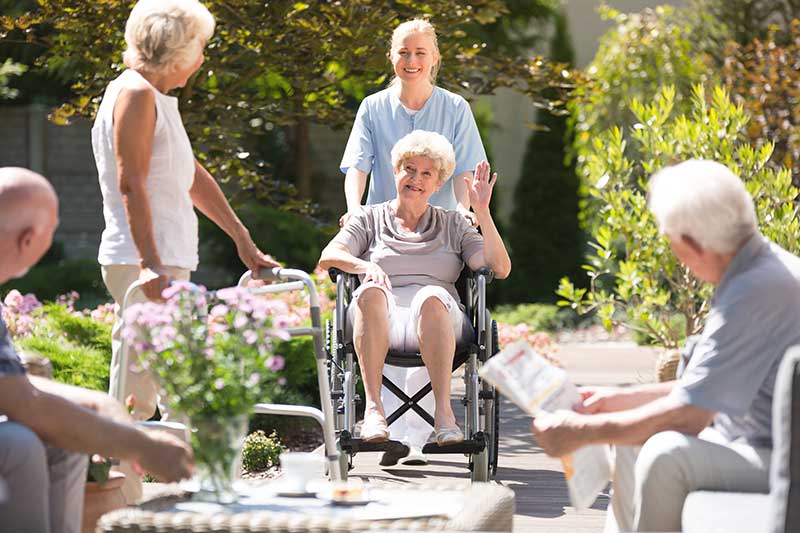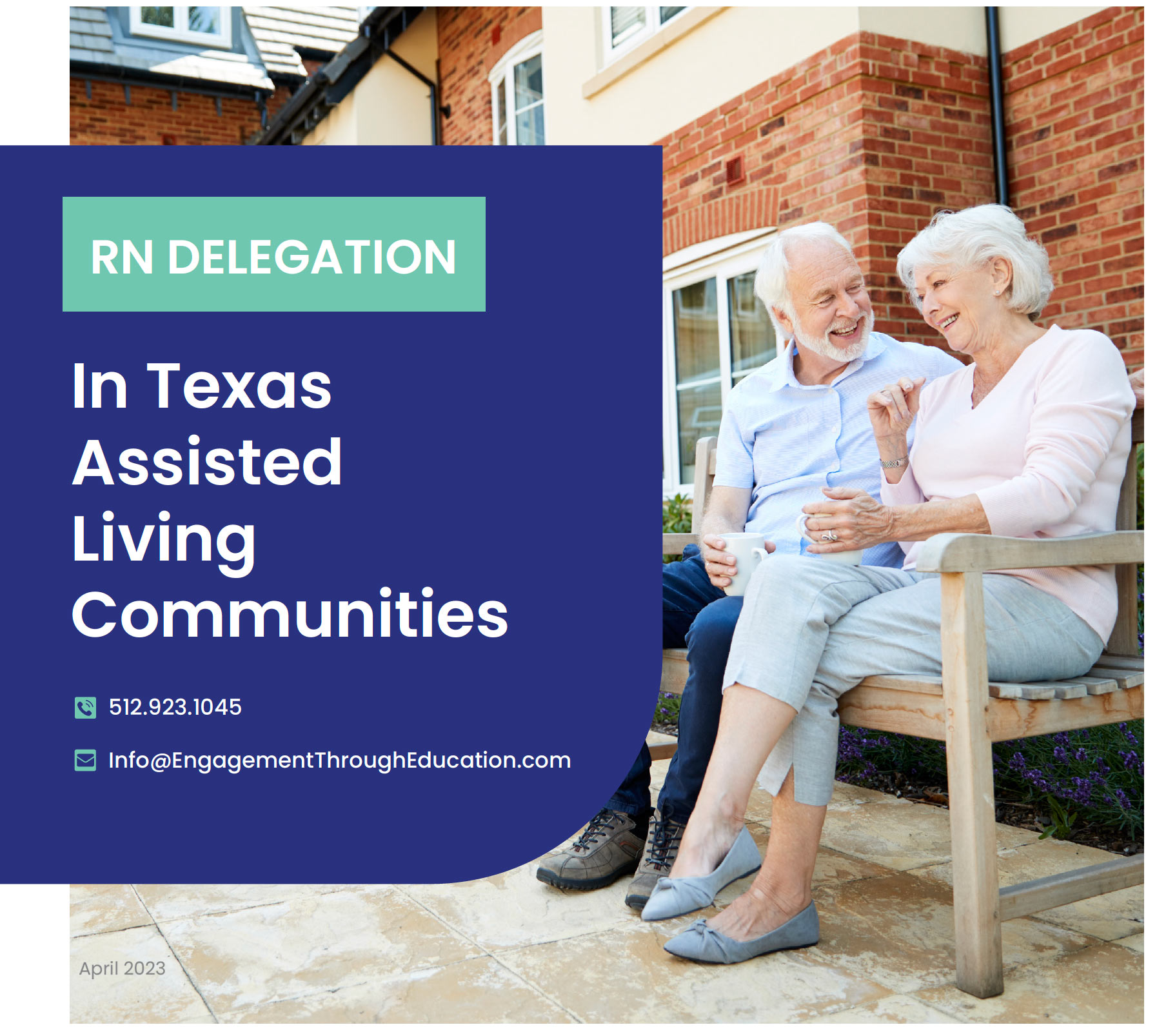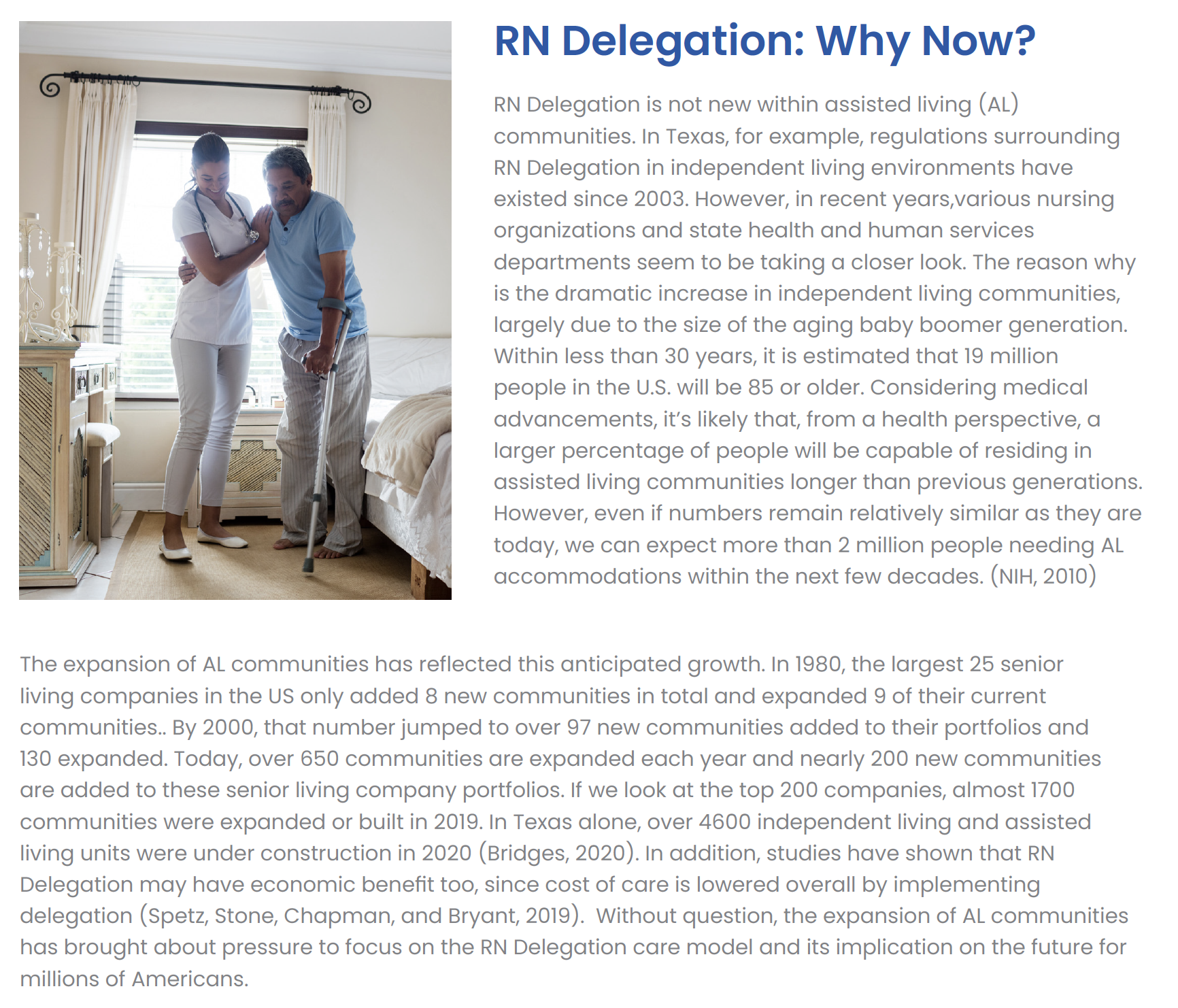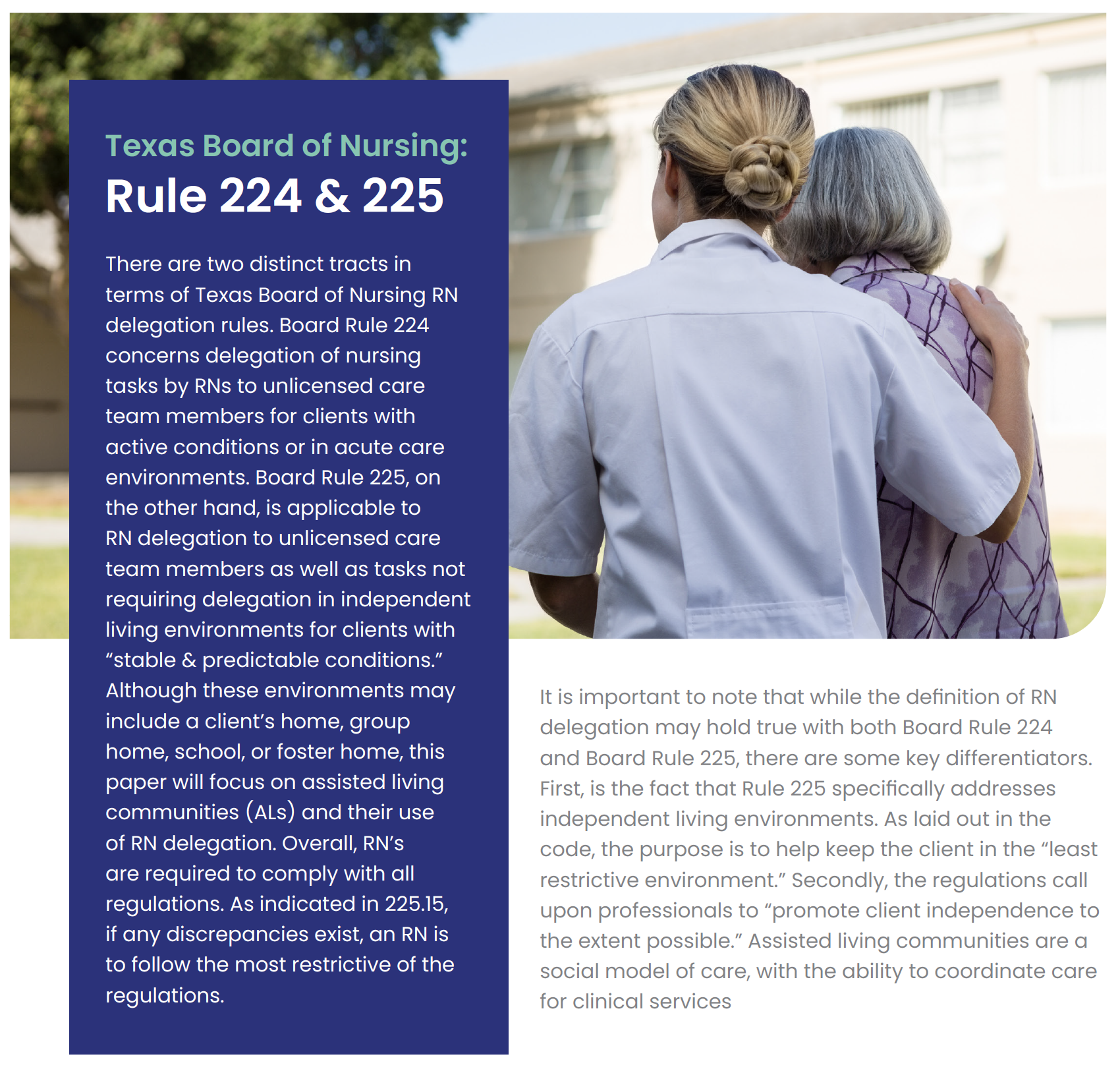With our booming senior population, collaborative care teams in assisted living communities are more critical than ever. Multitasking is common for nurses in this setting. Their responsibilities range from patient care and paperwork to community management and budget preparation, all while functioning as the clinical expert for the community.
In these situations, the nurse’s delegation of specific nursing tasks to unlicensed care team members is the practical strategy for providing efficient, cost-effective quality care. This process is known as delegation in nursing, where a licensed registered nurse is accountable for the outcome and is not permitted to transfer nursing decision-making authority.
Delegation in Nursing Criteria
Given the range of time-consuming duties associated with patient care, delegation is critical for nurses to enhance their productivity. Delegation can result in significant efficiency improvements, allowing nurses to perform their roles more successfully and freeing up time to resolve issues that only nurses can address.
To identify the proper delegation in nursing criteria, an RN in Texas, for example, must review and adhere to all of the rules included in Texas Board of Nursing Code sections 225.6 and 225.9.
The Five Delegation Rights
The following Five Delegation Rights define nursing accountability at all levels and serves as a mental checklist to clarify critical components of the decision-making process.
The Right:
- Task
- Circumstances
- Person
- Direction/communication
- Supervision/evaluation
Competency and Accountability Within the Care Team
The RN in a delegation system is accountable for delegated responsibilities and ensures the training and competency of each member of the care team. Additionally, the RN must complete a competency analysis of the care team and assign roles appropriately. The care team does not have a license and the RN, therefore, will bear the brunt of responsibility.
What Tasks Can the RN Delegate?
In addition to distributing medications, RNs might assign other tasks to members of the care team.
According to Section 225 regulations, an RN may assign particular tasks to the care team, such as:
- Any daily living activity (ADL) or health maintenance activity (HMA) that the RN has determined needs delegation under regulations 225.7 and 225.8 of the Texas Code
- Recording, collecting, and documenting data which includes vital signs, height and weight, intake and output, capillary blood and urine tests, environmental conditions, notes related to client’s care, observed behaviors related to care
- Reinforcement of health teaching provided by RN to client
- Inserting and/or irrigating urinary catheters or feeding tubes (only those that are permanent)
- Routine care for ventilator or tracheostomy
- Caring for broken skin or wounds where there is a low infection risk
- Administration of oxygen for non-acute respiratory maintenance
Depending on your care community and assisted living state regulations, delegated tasks may vary.
How Does Outsourced Delegation in Nursing Improve Outcomes?
Delegation in nursing improves an assisted living community’s overall care.
Numerous benefits emerge from the ability of delegation to build consistent systems, processes, training, and accountability.
- Numerous ALs have reported a reduction in medication errors. We cannot emphasize this enough – it has the potential to save lives.
- Effective delegation results in decreased antianxiety and antipsychotic medication usage. When an RN is familiar with the residents and care team, they may, for instance, offer alternative solutions that benefit both the resident and the team.
- It eliminates the possibility of inconsistent training, procedures, and standards. There is considerable confusion if the internal nurse leaves the AL community.
- Although AL communities may hire an internal RN to perform the delegation in nursing duties, this is not the most effective use of that nurse. Moreover, internal nurses are usually overburdened.
- Outsourcing relieves the burden of delegation compliance from internal team members. In addition, the team sets and follows standards and routine onsite visits by the outsourced RN ensure accountability.
- Focuses on resident independence and provides the support the care team needs to implement procedures furthering that independence.
Most significantly, overall client and resident care improves. AL communities who outsource their RN delegation have several advantages over those that do not.
How ETE Promotes Team Synergy
Firstly, providing a copy of the regulations is insufficient. ETE empowers your team with the information they need to thrive by fostering a culture of growth. The principal purpose of our educators is to gain approval from your team members. After all, education cannot occur in the absence of engagement.
Secondly, our training methodologies are well-established. We use them to ensure that we convey the core message. Each team member is critical to the growth of the organization’s objective.
Thirdly, and most importantly, it is possible to see an optimal resident experience when care team members, internal AL nurses, and leadership collaborate with residents. Care team members are trained and empowered to provide greater levels of care under the guidance of our licensed nurses.
Our Professional Development Programs
We understand that not everyone’s needs are identical. Our courses address executive directors and registered nurse leadership development as well as group and on-demand delegation in nursing classes for medication delegation and unlicensed med techs. All of which are tailored to the requirements for groups of any size. We also offer in-service training for CNAs, CMAs, nurses, and non-licensed caregiver education for a variety of topics including PPE/infection control, AL required annual competencies, and customized inservices, to name a few. Furthermore, your education is enriched with our real-world case studies demonstrating how our professionals have achieved superior outcomes.
Our registered nurses take a long-term relationship-building approach when caring for community members who trust them with their health and independence. Ultimately, we are committed to ensuring stability and continuing education for both new and existing members of the care team so that they may remain current in a constantly changing environment.
Want to learn more?




